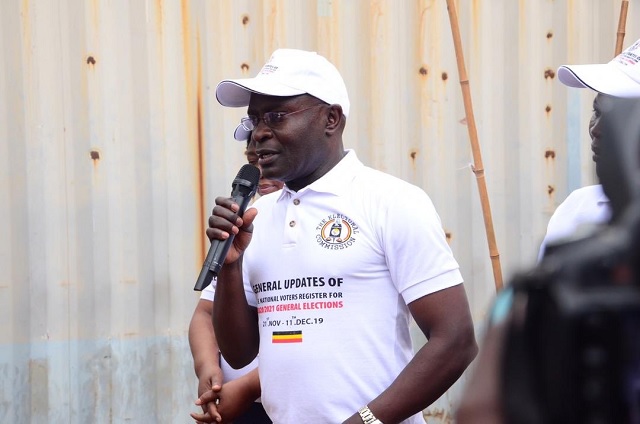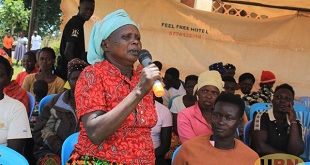
Kampala, Uganda | THE INDEPENDENT | Electoral Commission (EC) has opposed several constitutional amendments proposed by the opposition in the Constitutional (Amendment) Bill, 2019, which directly affects its operations.
In its proposals tabled by the Shadow Attorney General, Wilfred Niwagaba, the opposition suggests to among others amendment of Article 60 to involve the Judicial Service Commission in the appointment of EC officials, revise qualifications of the EC Chairperson and bar the appointment to the Commission anybody involved in elective politics.
They also propose amendment of Article 61 by inserting a new clause requiring the EC to hear and determine an election complaint before polling within ten days from the date of receipt. The EC Chairperson, Justice Simon Byabakama, says the proposed amendment to provide for the Judicial Service Commission to advice on the appointment of EC officials should be harmonized with Article 147 on advisory functions of the Judicial Service Commission, which in its current form doesn’t extend to the appointment of non-judicial officers.
“This may require amendment of the said Article to accommodate the proposed amendment. In the alternative, only judicial officer may be subjected to the mandate of the Judicial Service Commission if he or she appointed as Chairperson of the Commission”, reads part of Byabakama’s response to the Legal and Parliamentary Affairs Committee.
Byabakama argues that not all EC officials may qualify to be judges so as to be subjected to the Judicial Service Commission. He says the current method of appointment and the attendant parliamentary vetting process remains a better option. About the qualification of the EC Chairperson, the Commission notes that the proposal to restrict to the position of EC chair to a High court Judge is restrictive and locks out other professionals who can competently man the electoral body.
“Given its mandate, the Commission would benefit from a wide range of various professions; and any person with requisite qualifications should have the opportunity to administratively steer the election management body,” further reads Justice Byabakama’s statement. He also says the proposal seeking to restrict or bar the appointment of people involved in elective politics or political party to the Commission is discriminatory.
“Decision of the Commission is by consensus and the issue of impartiality shouldn’t arise. Further, the requirements of Article 60 (5) of the Constitution allows a sitting Member of Parliament, member of local government council, member of the executive of a political party or organization, among others, to be appointed as a member of the Commission, only to relinquish his or her position following the said appointment,” says Byabakama.
He says the involvement in elective politics or political party or organization leadership falls under the ambit of electoral matters, public administration and governance hence rendering the proposal by the Opposition self-defeating. On the proposal for EC to hear and determine an election complaint arising before polling within ten days after receipt, Byabakama says the proposal isn’t viable given the volumes of complaints that arise before and during polling. He says that while timelines are appreciated, they shouldn’t be prescribed in the Constitution but in the enabling electoral laws.
“In the last general election we had over 300 complaints handled during and before polling. Reasonable timeline, if any, may be prescribed under the Electoral Commission Act, Cao 140, mindful that some of the complaints are not handled in time due to non-attendance by the parties and witnesses to the said complaints and the need to conduct inquiries and investigations with other relevant authorities like police and National Council of Higher Education so as to logically conclude a matter,” Byabakama explains.
The Legal and Parliamentary Affairs Committee Chairperson, Jacob Oboth, said the EC response has been distributed to committee members who will later interface with the Commission officials for clarification if necessary. However, the Commission is silent other amendments proposed by the opposition, which among others include scraping the representation of the army in Parliament, repeal of the Office of Prime Minister and Vice President, reinstatement of presidential term limits and prohibiting the appointment of Ministers from among MPs among other things.
The Committee is now scheduled to interface with the Judicial Service Commission (JSC), Uganda Law Society (ULS) and Prime Minister on the Bill next week.
*****
URN
 The Independent Uganda: You get the Truth we Pay the Price
The Independent Uganda: You get the Truth we Pay the Price



